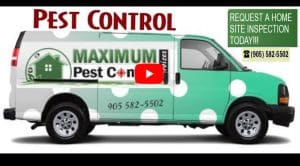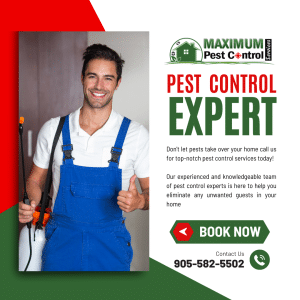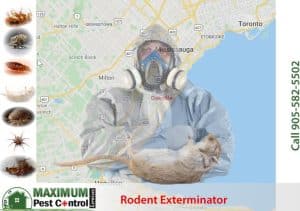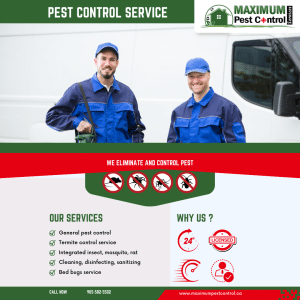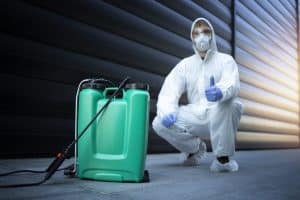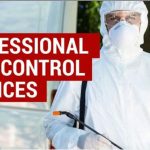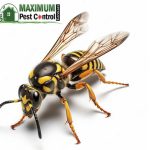
Why You Need Residential Pest Control Services
Why is Residential Pest Control Important for Homes?
Pest control is essential for homes, as it eliminates dangerous insects and rodents that can cause harm to a home’s inhabitants or its structure. Regular pest control checks protect against the spread of bacteria, viruses and diseases from pests like ants, cockroaches and fleas. Additionally, common household pests are known to damage furniture, electrical wiring and insulation materials resulting in costly repairs. Easy preventive measures such as proper storage of edibles and regular cleaning can go a long way in protecting our homes from unwanted pests.
What Are the Most Common Household Pests?
Pests such as insects, rodents and wildlife can cause a great deal of damage to homes. Common household pests come in many shapes and sizes, from roaches and ants to mice and rats. They pose serious health risks due to their disease-spreading potential, so it’s important for homeowners to be mindful of which pests are the most common in their area. The following is a list of some of the most common household pests:
- Cockroaches – These resilient creatures thrive in warm, damp places with an easy access to food sources like pantries or kitchens. Cockroaches spread bacteria that could potentially lead to food poisoning if ingested by humans.
- Ants – Species such as carpenter ants use wood debris for shelter and feed on plant materials found around homesteads. They’re especially attracted by sweets or sugary items left out within reach at counter-tops or tables.
- Bedbugs – Found lurking inside crevices such as furniture seams, behind picture frames or wall outlets—these resistant parasitic insects typically feed off human blood while asleep during nighttime hours. Bedbug bites may not always manifest right away but keep an eye out for rashes indicative of these pesky guests!
- Mice & Rats– Both rodents feast upon stored groceries found within kitchen cabinets; what makes matters worse is they often contaminate that same food through their droppings and urine.
- Termites– Not agreeable tenants since they gnaw through wooden beams under house foundations leaving entire properties structurally compromised over time!
These are just some examples of typical household pest problems you should watch out for when inspecting your premises routinely.
Is DIY Pest Control Effective?
DIY pest control can be effective in eliminating minor infestations of pests. It usually requires using natural products such as cayenne pepper, garlic oil, or even baking soda to repel insects and bugs. These home remedies create a hostile environment for the pests that forces them away from the house. They are also non-toxic and safe for humans, animals, and plants when used correctly.
Unfortunately, DIY methods typically do not provide long-term solutions to pest problems due to their short-lived effects. For more serious cases of infestation where there is an abundance of pests living in one’s home or garden area, it is recommended to contact a professional exterminator who knows how identify possible causes and develop an appropriate action plan based on those findings.
It’s important to note that successful strategies may vary significantly depending upon the type of insect or animal involved and its typical behaviours/habits in relation to food sources & other environmental factors. Always seek guidance from a licensed expert prior attempting any major DIY project. This will help reduce unnecessary risks while providing good value for money spent on supplies and labour costs associated with controlling certain types of invasive species populations.
When Should You Call a Professional?
When pests invade your home, it’s important to call a professional. A residential pest control service can identify the scourge, provide appropriate treatments and help prevent future infestations. Taking immediate action is key for controlling an existing problem or better yet, preventing a future one.
Moreover, certain types of pest outbreaks require more specialized knowledge and treatment that only professionals have access to. Pests such as bed bugs may take multiple visits from an exterminator in order to eliminate due to their ability to lay dormant eggs and reproduce quickly.
Some pesticides are highly toxic and must be handled by trained personnel with the proper protection gear when applying them in sensitive areas. It’s also essential since these experts know how protect other creatures living in your environment, while eliminating the rest of the threat safely so as not endanger anyone else.
What Services Do Pest Control Professionals Offer?
Pest control services are vital in keeping homes, businesses and gardens safe from various types of pests. A professional is trained to identify the source of infestation and provide appropriate methods to rid premises of these unwanted visitors. The following are some examples of pest control services offered by experts:
- Insect Control: Including termites, fleas, bedbugs, cockroaches, ants and more. Professionals can provide comprehensive inspections to identify current infestations before treating them with chemical treatments or baits.
- Rodent Control: Eliminating rats and mice from residential properties requires traps as well as understanding behaviour patterns and habitats. Specialized baits combine with removal techniques guarantee long-term protection against these rodents.
- Wildlife Removal: Such critters as raccoon’s, skunks or snakes may present an unusual problem for homeowners who need professional trapping expertise for successful management programs on a property basis.
- Lawn Care Services: This includes treatment for ticks, bees (ground nest destruction), chinch bugs among others who damage lawns through feeding and burrowing activities.
- Exclusion Techniques: This involves sealing or fixing the foundational piers, window sills and around soffits that usually provide entrance points for pests like rodents.
- Sanitation Maintenance: Setting up a regular schedule of mold treatment, moisture control as well as meticulous cleaning of kitchen areas will be the most effective way to reduce pest infestation in your premises.
Are Pest Control Products Safe for Home Use?
Pest control products are essential for maintaining healthy home environments that are free of harmful bugs and insects. Homeowners who wish to protect their property should take precautions against infestation, however, this requires knowledge and consideration as safely using pest control products can be complicated.
The safe usage of pest control products is important for protecting both the environment and one’s own family from any unforeseen harms. All poisons need to be applied carefully with specific concentration levels in order to be effective without being a danger or contaminant to humans, pets, plants or wild life.
Moderation and caution should be the hallmark in applying any such product to help avoid health risks. Usage instructions must also be read prior to making any application and it is best to wear additional protection, such as gloves or face guards, when handling chemicals. Finally, all leftover products should be disposed of with caution if not properly stored for future use.
How Can Professional Pest Control Be Environmentally Responsible?
Pest control and its environmental implications have always been a pressing concern. As such, the need for pest control to prioritize an Eco-friendly approach is of utmost importance. Professional pest controllers can ensure an environmentally responsible approach by making use of natural methods to promote health and hygiene while minimizing health hazards associated with pests, leading to healthier ecosystems overall.
To be truly environmentally considerate, professional pest control teams opt for non-chemical treatments whenever possible. This includes using effective exclusion techniques like screens and traps to keep out unwanted critters from one’s premises. Furthermore, other solutions include landscape modification (installing fences) or physical removal (removing nests). Of course chemical sprays are available, but they must be used judiciously as they can harm beneficial organisms found in the environment.
A multifaceted integrated pest management program both enables you minimize risk associated with chemical usage while curbing pest population within environment. For instance, “attractants” based on pheromones could be placed strategically, contributing desired objective without introduction of synthetic compounds into ecosystem.
Choosing the Right Pest Control Provider
Choosing a pest control provider is not a decision to be taken lightly. It requires research and identifying the company that best suits one’s needs. Several key factors should be considered when making this important choice. The timing of the response, guarantee period, service frequency, price range and payment terms are all worth taking into account when hiring a professional pest control provider.
When evaluating potential providers, look for one who has years of experience in the industry and is knowledgeable about developments and trends in pest management technologies. Ask questions regarding safety protocols for family members or pets, as well as information on post-treatment issues such as follow up visits or warranties on new products applied during treatment.
A reliable company will provide clear answers without hesitation and will also offer after-care services if necessary to ensure long-term protection from pests. Lastly, reviews play an important part before making any commitment with your chosen service. Take time to read through customer feedback from both Google/Facebook & other websites, which give you better insight into real life experiences with those companies.
Final Thoughts by Maximum
Pest infestation in the home is an irritating menace causing much distress and even health risks. Professional residential pest control services are needed to address the problem swiftly and decisively. Trained technicians possess a wide array of technological, chemical, and other methods to effectively remove pests from homes or prevent them from entering altogether. Not only does this provide peace of mind but it also stops further damage being done within the domestic environment. Furthermore, effective management helps add value to homes by ensuring it is kept clean and healthy; this has economic benefits which can be sustainable over time.

